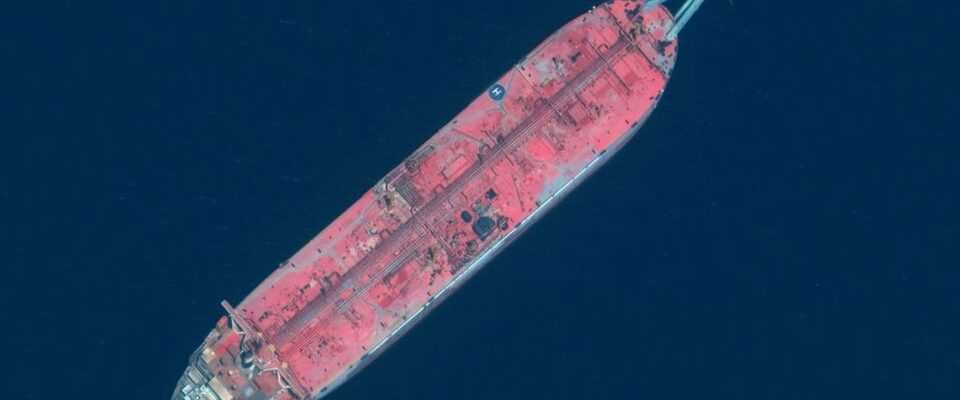contents
The ceasefire brought hope that the oil tanker could be secured – but so far the necessary money has not been forthcoming. A donor conference wanted to change that. With little success.
David Gressly, the UN Humanitarian Coordinator for Yemen, used powerful words to shake up the world community. More than a million barrels of oil are stored in the supertanker FSO Safer, one of the largest in the world, he said at the specially convened donor conference in The Hague.
Anchored off the port of Hudeida, the ship has for decades served as a storage facility for Yemeni oil destined for export. However, since the outbreak of war, the supertanker has not been maintained and is falling apart. The old tanker could soon leak, break apart or even explode, according to David Gressly.
The consequence would be an oil spill, which would even exceed the environmental catastrophe of 1989 caused by the tanker Exxon Valdez by a multiple.
Legend:
The satellite image shows the tanker FSO Safer. The ship could explode at any time – with devastating consequences.
key stone
The consequences for the environment alone would be unprecedented, the livelihoods of the people on the Red Sea coast would also be threatened, not only in Yemen but also in other neighboring countries.
UN estimates cost at $144 million
But with the two-month ceasefire that was declared in April, history began to move. The UN found an agreement in principle – not only with the Yemeni government side, but also with the Houthi rebels, who control large parts of Yemen and the port city of Hudeida.
The UN put forward a plan to safely pump out the vast amount of oil and transport the rusting FSO Safer in a complex operation. The cost of both parts of the operation was estimated at $144 million.
Donor conference raises too little money
The Netherlands volunteered to host the donor conference in The Hague in order to mobilize the funds. Dutch Foreign Minister Wopke Hoekstra tried economic logic.
Cleaning up a Red Sea oil spill of the expected magnitude would cost twenty billion dollars, so it is estimated that pumping out the oil and disposing of the rusting behemoth could be had for less than a hundredth of that amount. But even the Dutch appeal was not enough to motivate enough donor states.
It ended up raising just under $40 million, a little over a quarter of the total requested and only half the money that was budgeted for the pumping alone. Of the oil states in the region, some of which are deeply involved in the Yemen war, only Qatar has so far promised to help with the operation.
Imminent autumn storms
The rest of the aid promised at the conference comes without exception from Western European countries, including Switzerland. The Humanitarian Coordinator for Yemen, David Gressly, tried to remain positive, speaking of a start while emphasizing the importance of raising more money quickly.
Also because there is a summer time window in the Red Sea that the UN wants to use: As soon as the autumn storms set in, the supertanker will be exposed to wind and waves again, making salvage more difficult and the risk of breaking all the greater.
